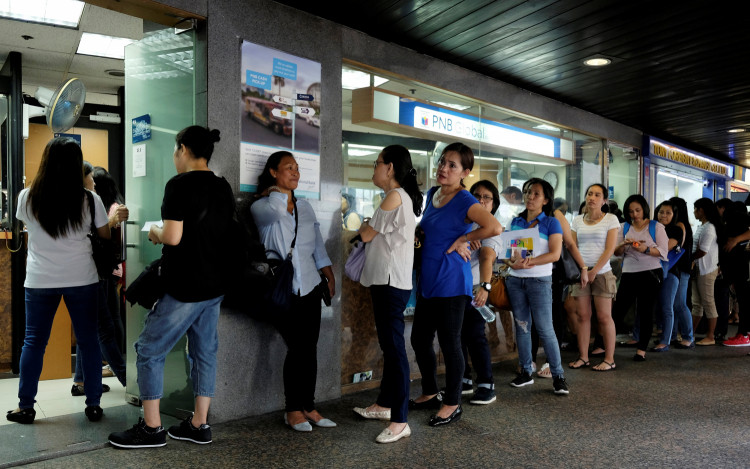Hong Kong's decision to force its foreign domestic workers to live with their employers is a "judicial stamp" determining that they "aren't worthy of the basic rights afforded to others who live and work here," a lawyer representing Filipino helper Nancy Almorin Lubiano said.
The Court of Appeal this week upheld a rule requiring foreign domestic workers to live with their employers. Lubiano was appealing a 2017 decision in favor of the rule.
"This judgement [marks] a judicial stamp determining that foreign domestic workers aren't worthy of the basic rights afforded to others who live and work in Hong Kong," Lubiano's lawyer Mark Daly said.
"Unfortunately, we don't have a choice in the matter," Maria, a 47-year-old Filipino domestic worker who has worked in Hong Kong for eight years, told Business Times in an interview. She gave her first name only. "From the beginning it's stated in our contract that [we] live where we work."
She is one of more than 400,000 foreign domestic workers currently employed in Hong Kong and, like many others, can't choose where she lives.
In a case presented before the Court of First Instance three years ago Lubiano argued the 2003 live-in regulation was discriminatory and overstepped the legal authority of Hong Kong's Immigration Department.
This time her legal counsel concentrated on the implications of live-in policies for working conditions and the opportunity for forced labor and quoted the International Covenant on Economic, Social and Cultural Rights.
This argument was rejected by the court. "A foreign domestic helper, being a person not having the right to enter and remain in Hong Kong, cannot rely on the argument of heightened risk of breach of (covenant) right[s]," the Court of Appeal said in a 51-page ruling.
The government says the policy is a means to protect employment opportunities for the local workforce but the hard work and low wages for employment as a domestic helper means labor is usually imported from developing countries in the region, experts say.
Luck Of The Draw
With this outsourcing comes opportunity for abuse, critics of the rule say. While many domestic workers in Hong Kong live in relative comfort, the fact that conditions largely depend on the employer is troubling to both workers and activists, they say.
Any Hong Kong resident with a monthly income of at least HK$15,000 ($1,935) can hire a domestic helper and must pay a minimum wage of at least HK$4,630 ($597) according to government policy.
"Ultimately, it is a matter of choice for a foreign domestic helper to decide whether to accept the live-in requirement in order to be permitted to come to work in Hong Kong," the court said in a summary of the ruling in 2018.
But many aren't given a choice. One in seven migrant domestic workers in Hong Kong were trafficked into the city for forced labor, according to research by the Justice Centre.
And even workers who come to Hong Kong by choice aren't guaranteed the same freedom of movement that most people take for granted - making the option to live outside of the household tempting.
"If you are a live out [worker] all your time can be yours," Maria said. "You can do whatever you want and go wherever you want when work is done."
Second-Tier Residents
Foreign domestic workers represent roughly 5% of Hong Kong's population and more than 98% are women. They are a vibrant part of the community - populating city squares and parks rain or shine on their one day off a week.
These women raise Hong Kong's children, clean the city's homes and care for its elderly but all the while remain ineligible for the permanent residency most foreigners attain after working for seven consecutive years, critics of the rule say.
When a contract ends the domestic worker has two weeks only to leave the city as part of a policy widely condemned by international rights groups, including the United Nations.
"I am very lucky because all of my employers are really nice but I can't blame other helpers for wanting to choose where to live because some of the employers are not really nice," Maria said. "They hurt them verbally, emotionally and physically as well like Erwiana."
In 2014 Erwiana Sulistyaningsih, a then-23-year-old maid from Indonesia, was tortured and beaten for eight months by her Hong Kong employer before being sent home with less than $10 in pay.
Erwiana's problems were unknown until later because she lived with her employer and was rarely allowed to leave the apartment.
Erwiana's employer, Law Wan-tung, was in the news again in 2018 when her six-year sentence for assaulting the domestic helper was commuted after spending less than three years behind bars.





